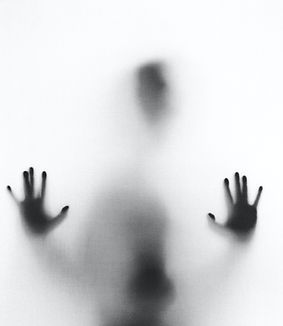

Specialties
At Calm Collective Therapy, we understand that mental health is a complex and deeply personal journey. Whether you're navigating anxiety, depression, PTSD, ADHD, relationship conflicts, or other life challenges, our clinicians approach your care with deep empathy and compassion, committed to helping you live a life you genuinely love. Specializing in modalities like Cognitive Behavioral Therapy, Mindfulness-Based Stress Reduction, Dialectical Behavioral Therapy, and Psychodynamic Therapy, we offer tailored strategies to navigate the challenges you face. Our mission is to create a supportive environment where you feel authentically heard, seen, and understood, enabling you to build resilience, foster meaningful relationships, and engage in self-care that resonates with your true self.
Read more below for some of our specialities and common symptoms to watch out for.

Anxiety
Anxiety disorders (e.g., generalized anxiety, social anxiety) can lead to pervasive feelings of dread, excessive worry, and physical symptoms like palpitations and restlessness. This chronic sense of unease can significantly impede career performance by affecting focus and decision-making abilities. It can also strain social relationships, as individuals with anxiety may avoid social situations or exhibit behaviors that are difficult for others to understand. Self-care routines, such as sleep and nutrition, often suffer as well, creating a cycle that can exacerbate the condition.

Depression
Depression is often characterized by a persistent feeling of sadness, a lack of interest in previously enjoyable activities, and a general sense of fatigue. These symptoms can have a substantial impact on multiple facets of life. Career-wise, motivation and productivity often take a hit. Socially, withdrawal is common, which can lead to the erosion of important relationships. Even basic self-care can become challenging, as individuals may neglect hygiene and nutrition.

Self-Esteem Issues
Chronic or acute stress can manifest in both physical and emotional symptoms, such as headaches, irritability, and insomnia. These symptoms can have a ripple effect, making work-related tasks seem insurmountable and social interactions strained. Over time, elevated stress levels can lead to burnout and may compromise one's ability to care for oneself, diminishing overall quality of life.

PTSD/ Trauma
Post-Traumatic Stress Disorder (PTSD) is typically a result of a traumatic event and manifests through flashbacks, emotional numbness, and hypervigilance. This disorder can significantly disrupt everyday life, as triggers can induce panic attacks or dissociation. Occupational performance may decline due to frequent absenteeism or a lack of focus. Relationships often suffer as well, as emotional withdrawal makes it difficult to connect with others.

ADHD
Attention-Deficit/Hyperactivity Disorder (ADHD) presents with symptoms such as inattention, impulsivity, and hyperactivity. This condition can affect every aspect of life, from career to personal relationships. Individuals may find it challenging to complete tasks at work, leading to job instability. Social interactions can become strained due to impulsivity and a lack of focus. Even basic daily activities like grocery shopping or paying bills can become daunting tasks.

Grief and Loss
The process of grieving often brings overwhelming emotions like sadness, anger, and guilt, which can result in physical symptoms such as fatigue and changes in appetite. These emotional and physical tolls can significantly impair one's social life, as grief can create a sense of isolation and detachment from others. Career performance may also suffer due to decreased focus and motivation, and self-care routines can fall by the wayside.

Relationship Conflicts
While not a formal psychiatric disorder, relationship conflicts often stem from deeper emotional or psychological issues. Chronic conflict can lead to emotional exhaustion and can impact one’s well-being just as much as any individual mental health condition. Relationships at work may deteriorate, leading to career instability, and personal relationships often suffer, causing emotional distress and isolation.

Mood Disorders
Mood disorders like Borderline Personality Disorder and Bipolar Disorder are characterized by extreme mood swings, emotional instability, and, often, impulsivity. These fluctuations can wreak havoc on an individual's career, leading to inconsistent work performance and strained professional relationships. Socially, the unpredictability can be taxing on friendships and romantic partnerships, leading to frequent break-ups or conflicts. Self-care is often compromised, either due to depressive episodes or impulsive behaviors.

Life Transitions
While life transitions such as moving, job changes, or divorce are not disorders, they can often lead to stress or exacerbate existing mental health conditions. These transitions can result in feelings of instability and anxiety, making it difficult to focus at work or maintain social relationships. Emotional well-being often takes a back seat during these times, making it critical to practice self-care and possibly seek professional support.
